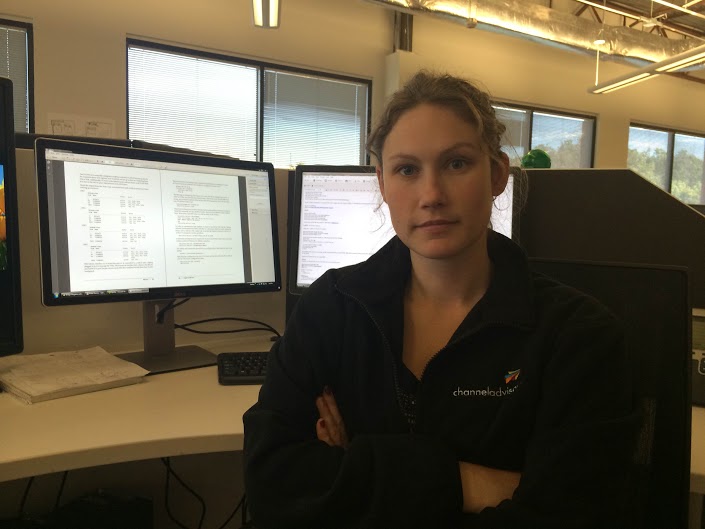Kicking butt and taking jobs
Liz Kiewiet was a junior at Paw Paw High School in southwest Michigan, “always interested in computers.”
But she said her high school had little to offer – she knew more than the teachers.
A friend suggested she tour the Van Buren Technology Center hub of Van Buren County's vocational program. She wound up in a class with students who had created a network with six computers, enabling them all to play some silly motorcycle racing game.
That's all it took.
“Once I saw I could do that, I got really jazzed about it,” Kiewiet recalled.
She enrolled in the center's computer networking and systems administration programs her junior and senior year, where she studied with teachers with Microsoft certification and real-world knowledge. The programs are among 28 career programs offered by the center, which serves 11 high schools within the county's intermediate school district.
“They knew what they were talking about. They were fantastic. They could pretty much answer any question I had,” Kiewiet said.
“They had industry experience. They owned their own businesses doing this kind of work. Real-world experience goes so much further.”
Kiewiet graduated from Paw Paw High School in 2006. Armed with the confidence she gained from the center, she enrolled in New York state's Rochester Institute of Technology and graduated with honors in 2010 with a four-year degree in applied networking and systems administration.
She worked three years as a data center network engineer for Cisco Systems in North Carolina, then took a job in December as network engineer with e-commerce firm ChannelAdvisor in Morrisville, N.C. At age 27, she earns a six-figure salary.
Robert Smith, an administrator at the Van Buren Technology Center, said outcomes like that are the direct result of funds that fuel the district's vocational program. It is backed by a 2.5-mill property tax, an amount that costs the owner of a $200,000 home, with a taxable value of $100,000, $250 a year. The tax revenue allows the center to accept students free of charge and to maintain a diverse career curriculum. The district also provides about $250,000 a year in free community college tuition to students in qualified courses.
“It's really about the community and what it deems valuable and worth their tax money,” Smith said.
Smith said officials are considering offering students two or three more career courses next year.
It’s another story for students in places like Livingston County east of Lansing, where they make do with fewer vocational programs scattered among several different high schools. The county’s intermediate school district has no tax millage to support vocational education.
In Iosco County north of Bay City, students have just five career programs to choose from. The county’s intermediate school district also has no millage to support vocational education.
Looking back, Kiewiet is certain she got a jump on the competition because of what she soaked up at the tech center. She gained more experience through a work-study assignment one summer installing ethernet cable and security cameras for a new school in the district.
“I went into networking programming and I kicked butt because I was so well prepared by Van Buren Tech,” she said.
Michigan Education Watch
Michigan Education Watch is made possible by generous financial support from:
Subscribe to Michigan Education Watch
See what new members are saying about why they donated to Bridge Michigan:
- “In order for this information to be accurate and unbiased it must be underwritten by its readers, not by special interests.” - Larry S.
- “Not many other media sources report on the topics Bridge does.” - Susan B.
- “Your journalism is outstanding and rare these days.” - Mark S.
If you want to ensure the future of nonpartisan, nonprofit Michigan journalism, please become a member today. You, too, will be asked why you donated and maybe we'll feature your quote next time!


 Liz Kiewiet vaulted from the Van Buren Technology Center to honors college graduate to successful network engineer for a North Carolina e-commerce firm.
Liz Kiewiet vaulted from the Van Buren Technology Center to honors college graduate to successful network engineer for a North Carolina e-commerce firm.
